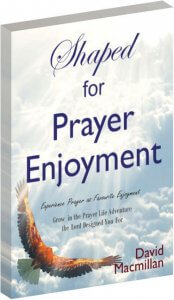The reminder
We’re doing a Pray in the Rain series in the Wingspan blog posts. I take a scripture from Wingspan’s Pray Scripture Bank, set a focus and give a sample outline, or signposts to guide the praying. [See Isaiah 55:10-11 for the Word-as-rain image.]
Use the guide, adapt it, or create an entirely new one from the anchor scripture. The truth avenues the Spirit opens to you in that scripture might be different to my guide. That’s okay. Our aim is to ‘see’ a truth the Speaker is drawing attention to, and to pray responses in a way that draws us into deeper agreement with him. A heart in agreement with him is at the core of prayer authority and prayer joy.
The romance focus
Whatever the prayer type, admiration should always be the eternal value frame we pray in. Recent Pray in the Rain posts focused on praise and (unpacking) thanks. The focus of this post is adoration.
Both praise and adoration can be responses to God’s love, but they are different. Praise exalts him as the loving God; adoration expresses our affection for him.
We’re designed to respond to God’s love. He framed his desire into a command and gave it top spot to show us how much it means to him (Luke 10:27). Obedience to him is the fruit of a life rooted into an eternal romance. Our entire being – heart, soul, mind and strength – has been drawn into a magnificent intimacy in which we are infinitely loved and express our imperfect but growing love for him.
It’s perhaps one of our poorest areas of prayer. We find it easier to praise God’s love for us than to express our own for him. Many are more at ease praying as warriors than lovers, or with following in Martha’s busy shadow than pausing with Mary to pour love’s perfume on Jesus. Growth in adoration prayer ignores our comfort zones in favour of a deeper life as Christ’s Bride.
In the lists of worship songs about God’s love for us, there are some that express deep love for him. Selected lyrics can become part of our adoration prayers, but it’s good to find and soak in the scriptures that underpin the lyrics. It deepens the heart’s connection to the truth and helps personalize the adoration. It becomes our own, not simply an echo.
Sometimes it helps to express affection for the Lord by praying from an image in scripture (example, Song of Songs 1:2-4) or from a narrative (example, John 12:1-3, used in Shaped for Prayer Enjoyment, Chap 10).

Pray in the Rain
Today’s Pray in the Rain scripture
Psalm 18:1-2. The focus: Declaring our love to the Lord
I love you, Lord, my strength. The Lord is my rock, my fortress and my deliverer; my God is my rock, in whom I take refuge, my shield and the horn of my salvation, my stronghold.
- Declare love I love you, Lord
This can be one of our most liberating, satisfying short prayers. As a conversation piece in pray continually mode, it centres our hearts on the Lord in the busyness and distractions of daily life. And it must be unimaginable joy to the Lord to hear his people declare their love for him often, even in their busiest or most difficult situations. Say it, try shouting it (we could do with a little embarrassment for the sake of this romance-above-all-romances!), or join the psalmist in singing your declaration of love for the Lord. Punctuate your night with it when you wake (or occasionally, set your alarm for some deliberate I love you, Lord time). Inject it into your busy day – while brushing teeth, booting the laptop, driving, shopping, messaging or meeting. Our inner well of adoration is deep, filled by God himself (Rom 5:5). So it’s good to also have some undistracted ‘set’ times for drawing from the well.
- Why you love him
The psalmist declares his love for God, and then he goes on to say why. There are many reasons to adore the Lord, but this isn’t a ‘make a list’ exercise. David picks just one, but uses eight different words to say it: strength, rock, fortress, deliverer, refuge, shield, horn of salvation, stronghold. In other words: I love you, Lord, for being my perfect Protector. He has already declared his love, but his prayer reaches for more words, more images from the well to enlarge his I love you, Lord.
Set aside some adoration time. The Lord’s generous love has given us many reasons to adore him, and with each reason he has filled our well with so much to draw from. Choose just one reason. Declare your love for him, and then focus on that one reason. Lower the bucket into the well and pour out your love for him in response to that one display of his love for you.
Love for him is his highest command, so adoration of him is our deepest response, and is the area of prayer we want to grow in most.




